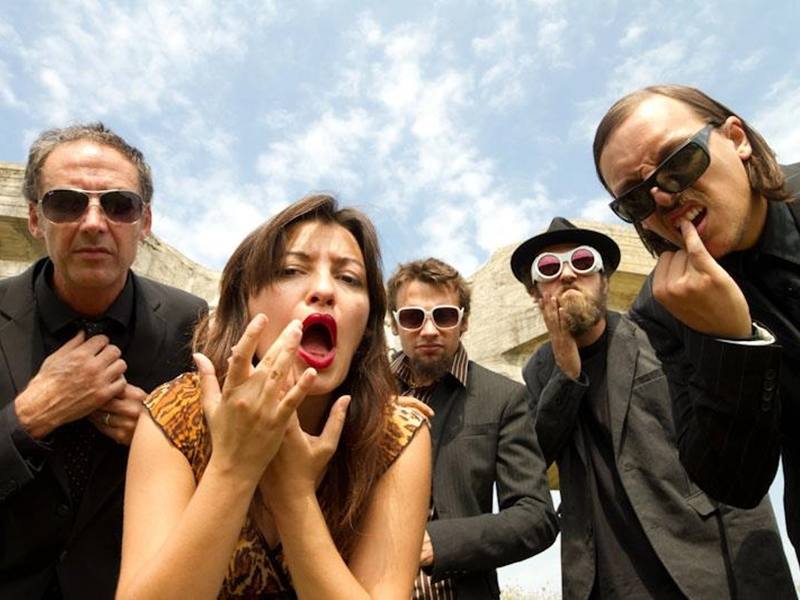Zykopops

"TURBOFOLK in the context of the hegemonising socialist project is seen as critique of the state through the sexualization of personal wealth and the "market trader success story". The fetishisation ofnon-collective behavioural modes (1) extends to cars, jewels and shiny surfaces, in protest against (opposition to) the concretization of the Yugoslav urban landscape & requisitioning of private property. The collapse of theTito ideal in the aftermath of the 1990s brings about a mirror shift in the dialectic, and the mythologization of a collective Balkan aesthetic becomes possible. In theZYKOPOPS manifesto this incorporates former shared territories ofHungary and linguistic neighboursBulgaria. In this neo-collectivization of consciousness, the polyvalent bonding agents of traditional music and rakija point to the possibility oftrue ecstatic egalitarianism (2).
By-product of a chance encounter/collision between Croatian alternative traditional band KRIES and apocryphal Scottish producerMartin Swan (MouthMusic "The Order of Things"),ZYKOPOPS recruits Balkan nightingaleLidija Dokuzović in late 2010 to begin work on a seminal canon. Texts from the greater Yugoslavia are revisioned in accordance with acollectively developed praxis (3),Swan working with well-honed tools of transformative synthesis (MOUTH MUSIC, MARTYN BENNETT, RUNRIG, NURU KANE, MASSIVE ATTACK, KRIES, SLOBODAN TRKULJA),Zejnilovic andLovrencic steeped in the alternative feminist critique of ELEMENTAL and post-modern shamanic ritual musicians KRIES,Dokuzovic drawing on cultural immersion in the song traditions of Macedonians, Serbians and Lesbians.
The resulting oeuvre shocks and unifies the post-conflict sensibilities of former Jugoslavs with its anti-materialist mission statement of catharsis and mythical regeneration through the embracing of trash aesthetic and post-marxistdialectic."
by Dragan Ivanišević, Emeritus Professor of Social Anthropology, Political Theory and Post-Structuralism, University of Zagreb
